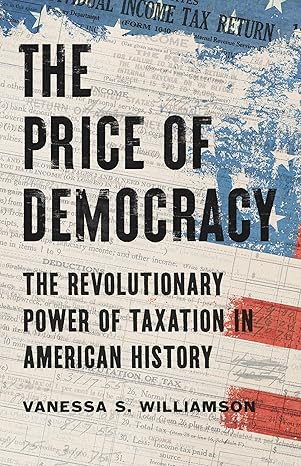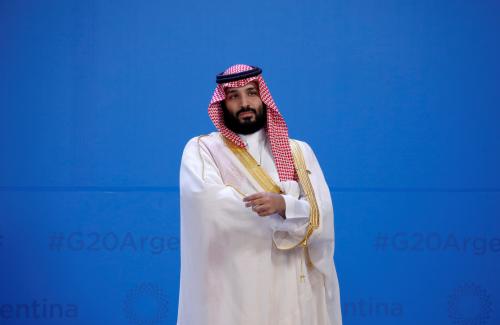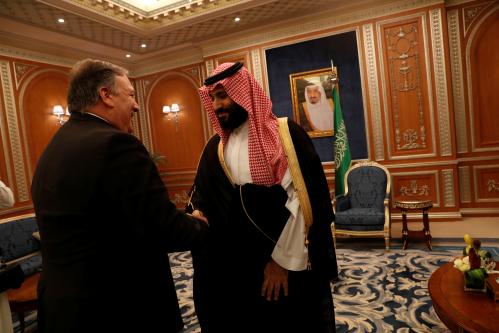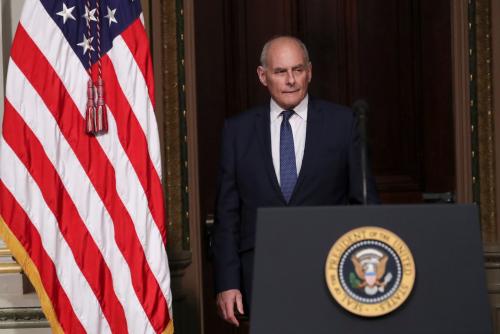Last week’s Senate uproar about clashing testimony from senior administration officials about Saudi Arabia showed that with more preparation and a different strategy, both the administration and Congress could be getting what they want. Instead, writes Elizabeth Saunders, the Trump administration is rapidly losing political capital—and paying real costs in Congress. This piece originally appeared in the Washington Post.
Over the weekend, President Trump confirmed that yes, Chief of Staff John Kelly would leave the White House by the end of the year—the latest departure in a two-year churn of advisers and cabinet officials. White House turnover and ongoing vacancies are a big problem for the Trump administration. What’s more, Trump has problems managing the team that he does have.
Last week’s big illustration: the Senate uproar about clashing testimony from senior administration officials about Saudi Arabia. With more preparation and a different strategy, both the administration and Congress could be getting what they want. Instead the Trump administration is rapidly losing political capital—and paying real costs in Congress.
The handling of Saudi Arabia policy shows that the administration is losing credibility with its own congressional allies.
Last Tuesday, CIA Director Gina Haspel briefed senators about the killing of journalist Jamal Khashoggi. Such briefings are usually routine. Haspel’s Capitol Hill visit was anything but.
Haspel appeared only after senators complained, loudly, that she had not yet briefed them. They weren’t satisfied that the White House had sent Secretary of State Mike Pompeo and Secretary of Defense Jim Mattis to echo Trump’s view that there was no “smoking gun” evidence tying Saudi Crown Prince Muhammed Bin Salman (MBS) to the killing.
It didn’t work. Startlingly, the secretary of Defense and secretary of State not only failed to persuade crucial senators of the administration’s case, but also seemed to anger them further.
Then things got worse. After Haspel finally briefed them, Republican senators unleashed stunning statements arguing that MBS approved the killing. Republican Sen. Bob Corker of Tennessee, the retiring chairman of the Senate Foreign Relations Committee, declared that if MBS were “was in front of a jury, he would be convicted in 30 minutes.” Lindsay Graham (R-S.C.), a Trump ally, suggested the administration would have to be “willfully blind” not to see MBS’s role in the killing.
Episodes like this are rare—precisely because presidents work hard to avoid them.
Presidents often try to control the flow of information to Congress. That can be risky.
Presidents frequently try to manage the politically fraught problem of when and how administration officials testify in Congress. Presidents work to manage sensitive testimony, as when the Johnson administration limited military officials’ appearances as the war in Vietnam dragged on. Or presidents may use officials’ public testimony to rally support for U.S. foreign policy, as when Gen. David Petraeus testified on Iraq War progress in the midst of the September 2007 “surge.”
But presidents who play this game poorly pay a political price—as the Trump administration is learning. Sending Mattis and Pompeo to back up the White House message seems to have backfired, since it angered the administration’s allies and led to Haspel apparently giving a very different message.
Trump could have handled the Khashoggi killing differently
This administration has not taken the usual steps to secure its own policy. For instance, the White House did not appoint an ambassador to Saudi Arabia until after the Khashoggi killing. Trump has relied instead on his inexperienced son-in-law Jared Kushner’s relationship with MBS. Trump had Pompeo spend scarce face time and credibility visiting Riyadh after the murder’s details emerged, which backfired when Pompeo was criticized for seeming too warm toward the regime.
That matters. A confirmed ambassador on the ground, credibly channeling the administration’s message, might have allowed the administration to play “good cop/bad cop”—publicly denouncing the killing and distancing itself from the regime and the war in Yemen, while privately sending back-channel reassurances.
Congressional Republicans alarmed by the Khashoggi killing but inclined to maintain the U.S.-Saudi relationship would have found that easier to accept. The Mattis/Pompeo/Haspel testimonies might have played out more quietly, without damaging leaks.
The Mattis/Pompeo/Haspel testimonies might have played out more quietly, without damaging leaks.
As I wrote last week, one president who was adept at this public/private strategy was George H.W. Bush, who publicly sanctioned and privately reassured Chinese leaders after the Tiananmen Square massacre in 1989.
In short, the administration could have gotten what it wants—continuing its Saudi Arabia and Yemen policy—at a much smaller cost.
Trump must now spend more political capital to continue his own foreign policy
After Mattis and Pompeo testified, the Senate did essentially reprimand the president by voting 63 to 37 to advance a resolution to end U.S. support for the Saudi war in Yemen, as Jordan Tama discussed here at TMC. Of course, the vote was only procedural. And GOP Senators do not appear ready to take formal, dramatic steps against Saudi Arabia.
But the events in the Senate will still cost the president.
As my research shows, members of Congress can impose costs on the president in two ways. First, Congress can withhold support for other priorities. That’s what Graham threatened in late November, saying he wouldn’t vote for the spending bill necessary to keep the government open “until we hear from the CIA”—thereby compelling Haspel’s testimony.
Second, Congress and other elites can argue with the administration in public. That makes a difference. Most people don’t pay that much attention to foreign policy. But they do pay attention when there is a loud, public break in consensus—especially among members of the president’s own party. That’s rare—and it hurts the White House.
Administration officials will now have to spend time—and political capital—assuaging senators’ concerns. An angry Congress is likely to spend more time on these issues. Personnel changes will eat up time as well. While Kelly’s replacement does not require Senate confirmation, other changes will require what promise to be high-profile hearings, for example to confirm a new attorney general or a new secretary of Homeland Security (if Kelly’s protégé Kirstjen Nielsen also leaves). Even in a divided Congress unlikely to pass much legislation, that provides a forum to ask pointed questions about past and future policies.
The episode has weakened the president’s standing and reputation even with his own GOP allies in Congress—and just before a Democratic House moves in, keen to investigate and hold hearings.
Of course, more scrutiny of administration policy could bring increased accountability for foreign policy. But from the perspective of presidents getting what they want, Trump could learn a lesson from George H.W. Bush.
It didn’t have to be this way.
The Brookings Institution is committed to quality, independence, and impact.
We are supported by a diverse array of funders. In line with our values and policies, each Brookings publication represents the sole views of its author(s).











Commentary
How Trump’s management of his team hurts his own foreign policy
December 13, 2018